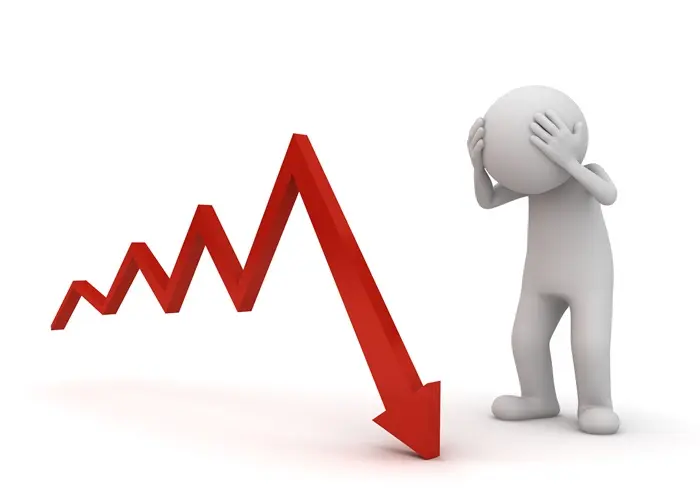Stock trading is one of the most popular ways of investing in the financial markets. The appeal of trading stocks is immense, as it allows individuals to potentially earn profits from price movements in the stock market. However, for beginners and even intermediate traders, the world of stock trading can appear overwhelming. This is where reading books on stock trading comes into play. By studying the right resources, you can build the necessary knowledge, strategies, and mindset to succeed in stock trading.
In this comprehensive guide, we will explore the best books to read for anyone interested in trading stocks. We will break down the key concepts that every trader needs to understand, the essential tools and techniques that will help you make informed decisions, and the most effective methods to implement these strategies. By the end of this article, you will have a better understanding of how to trade stocks and which books to read to sharpen your skills.
Why Books Are Important for Stock Trading
Before diving into specific book recommendations, it’s important to understand why books are so valuable for stock traders. Here are a few reasons why reading about stock trading can benefit you:
Comprehensive Learning: Books offer in-depth explanations of trading concepts, strategies, and the psychological aspects of trading that shorter articles or videos may overlook.
Expert Insight: Books are often written by successful traders or financial experts, giving you access to their knowledge and experience.
Structured Learning: Trading books are often structured in a way that allows for a gradual buildup of knowledge, making it easier to learn at your own pace.
Long-Term Reference: Unlike fleeting articles or YouTube videos, books can be referred back to for continued learning.
By investing time in reading stock trading books, you can improve your understanding of the stock market and position yourself for better decision-making and increased profitability.
Key Concepts Every Stock Trader Should Know
Before delving into specific books, let’s first identify some of the core concepts that are essential for trading stocks:
1. Technical Analysis
Technical analysis involves studying historical price movements, chart patterns, and other market indicators to predict future price movements. It is a key tool for short-term traders, helping them make informed decisions on entry and exit points for trades.
2. Fundamental Analysis
Fundamental analysis involves analyzing the financial health of a company by looking at its income statement, balance sheet, and other financial metrics. Long-term investors often use fundamental analysis to evaluate whether a stock is overvalued or undervalued based on the company’s financials.
3. Risk Management
Effective risk management is crucial to becoming a successful trader. This includes determining how much capital to risk on each trade, using stop-loss orders to limit potential losses, and diversifying your portfolio.
4. Trading Psychology
Trading psychology plays a significant role in successful trading. Emotional control, discipline, and patience are necessary traits for traders to avoid impulsive decisions and manage the stress that comes with trading.
5. Types of Orders
Understanding the different types of orders—market orders, limit orders, stop-loss orders, and others—is fundamental to executing trades effectively. These orders determine when and how your trades will be executed.
6. Stock Market Lingo
Familiarity with stock market terms like “bull market,” “bear market,” “volatility,” and “liquidity” is essential for understanding the stock market environment and making informed trading decisions.
Best Books for Stock Traders
Now that we have an understanding of the essential concepts in stock trading, let’s explore the best books that can help you master these concepts and become a successful stock trader.
1. “A Random Walk Down Wall Street” by Burton G. Malkiel
This book is one of the most well-known and respected works in the field of investing and stock trading. Malkiel argues that stock prices follow a random path and that it is extremely difficult to predict short-term market movements. Instead, he advocates for long-term investing strategies like index funds. The book covers a wide range of topics, from the history of stock markets to different investment strategies, making it an excellent choice for both beginners and seasoned investors.
Key Takeaways:
- The concept of the efficient market hypothesis
- The advantages of passive investing
- A detailed history of stock market bubbles and crashes
2. “The Intelligent Investor” by Benjamin Graham
Widely regarded as one of the best books on investing ever written, “The Intelligent Investor” is a must-read for anyone serious about stock trading. Written by Benjamin Graham, a legendary investor and mentor to Warren Buffett, this book provides timeless advice on value investing, risk management, and psychological discipline. The book emphasizes the importance of investing with a margin of safety and avoiding speculative investments.
Key Takeaways:
- The value investing approach
- The importance of a “margin of safety”
- How to manage risk and avoid speculation
3. “How to Make Money in Stocks” by William J. O’Neil
William J. O’Neil is the founder of Investor’s Business Daily and a successful stock trader. His book, “How to Make Money in Stocks,” introduces his proprietary CAN SLIM method, which combines technical and fundamental analysis to identify stocks with high growth potential. The book is full of practical advice and case studies, making it easy to understand for novice traders.
Key Takeaways:
- The CAN SLIM method for stock selection
- How to spot trends in stock price movements
- Using charts and technical indicators for trading decisions
4. “Market Wizards” by Jack D. Schwager
“Market Wizards” is a series of interviews with some of the world’s most successful traders, offering a glimpse into their trading strategies, psychology, and risk management techniques. Schwager covers a wide range of trading styles, from discretionary to systematic trading, and the lessons learned from these experts can help you refine your own trading strategy.
Key Takeaways:
- Insights from top traders on their approaches to market analysis
- The importance of psychology and emotional control in trading
- Real-life examples of successful trades
5. “Reminiscences of a Stock Operator” by Edwin Lefèvre
Though written in 1923, “Reminiscences of a Stock Operator” remains one of the most popular and influential books on stock trading. It tells the fictionalized story of a stock trader named Larry Livingston, who is based on the legendary trader Jesse Livermore. The book explores trading psychology, market manipulation, and the importance of understanding human behavior in the market.
Key Takeaways:
- The psychological challenges of trading
- The importance of timing and market trends
- Lessons learned from Livermore’s successes and failures
6. “The Little Book of Common Sense Investing” by John C. Bogle
Written by the founder of Vanguard Group, John Bogle, this book advocates for low-cost index fund investing as a strategy for long-term success. While it is primarily geared toward long-term investors, it provides valuable lessons for stock traders who want to understand the importance of a diversified portfolio and the drawbacks of trying to “beat the market.”
Key Takeaways:
- The case for index fund investing
- How to minimize investment costs
- The importance of long-term thinking in stock trading
7. “One Up On Wall Street” by Peter Lynch
Peter Lynch is one of the most successful fund managers of all time. In “One Up On Wall Street,” he shares his investment philosophy and approach to stock picking. Lynch emphasizes the importance of doing your own research, focusing on companies you understand, and using a “bottom-up” approach to select stocks with strong growth potential.
Key Takeaways:
- How to identify growth stocks
- The importance of researching companies before investing
- Lynch’s approach to evaluating stocks and industries
Trading Strategies and Techniques
Each of the books mentioned above introduces unique strategies and techniques for trading stocks. Here are a few common approaches that you will encounter in these books:
1. Value Investing
Value investing focuses on buying undervalued stocks with solid fundamentals, holding them for the long term, and waiting for the market to recognize their true value.
2. Growth Investing
Growth investing targets companies with high growth potential, typically in industries like technology or healthcare. Traders use both fundamental and technical analysis to identify these high-growth opportunities.
3. Momentum Trading
Momentum trading involves buying stocks that are trending upward and selling stocks that are falling. This strategy often relies on technical indicators like moving averages and relative strength indexes (RSI) to identify trends.
4. Swing Trading
Swing traders look for short-to-medium-term price movements in stocks. They capitalize on “swings” in the stock price by entering and exiting trades over a period of days, weeks, or months.
Conclusion
Stock trading is both an art and a science. To succeed in this field, you need a solid understanding of the markets, an effective strategy, and the ability to control your emotions. By reading the right books, you can gain valuable knowledge and insights that will help you navigate the complexities of the stock market.
Whether you are a beginner or an experienced trader, the books listed above provide the foundation you need to make better decisions and improve your trading skills. Start by reading a few of these books, applying the lessons to your trading strategy, and continuously refining your approach. With patience and practice, you can achieve success in stock trading.
Related topics:






























